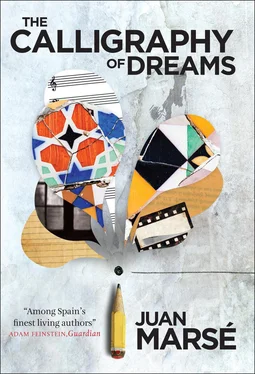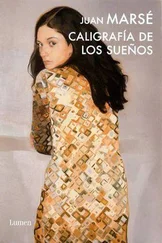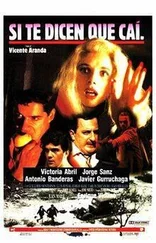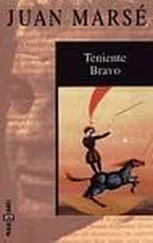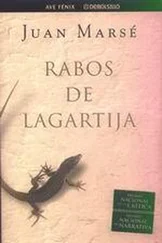Be reasonable. How is he supposed to be reasonable? Three days after his nocturnal adventure in the seedy part of the city and his eventful return in the rain and lightning, he still cannot get things straight. Apart from the enchantment provided by the beer, the quicksilver and other shadows in the ever-present mirror, and that ill-defined promise of the longed-for sexual adventure, all he retains of that night is a confused memory he cannot disentangle however hard he tries, and which left him feeling cheated and stupid. Your first night whoring, and you fall in love! How dumb can you get! Struggling with hazy thoughts of exoneration, blaming what happened on his being drunk for the first time in his life, which left him senseless and groggy by the end of the night, he finds it hard to admit that he really saw the drain swallowing the letter in the rainstorm, that he realised what was going on and did nothing to save the envelope from ending up in the sewer. Sometimes he prefers to believe it was taken from his pocket together with the banknote; the girl’s small hands fluttering like wings round his face, hands smelling of bleach enveloping him with movements that were both urgent and affectionate … But why would they steal a letter without an address from his pocket? Who could possibly be interested in that? Could they have thought it had money in it? Or perhaps what happened was that the quick, stealthy hand, whoever it belonged to (but not hers, please, not hers) felt the five peseta note and an envelope instead of a wallet, and decided that was better than nothing? In any case, he finds it hard to imagine who could have tried to pick his pocket, and where.
And yet whether the envelope and the money were stolen or lost, and despite the persistent sensation that all this happened in the recurrent ambit of shadowy mirrors and dreams, places only inhabited in novels and films, and although he tries over and over again to dismiss the matter as unimportant, he still feels disquiet. The mistake of doing nothing to stop the letter going down the drain (even though he is not entirely convinced he really lived the episode, and sometimes thinks he dreamt it), that simple, unfortunate mistake, which can only be put down to his calculated indifference, has taken root in his mind. However much he tries to convince himself it was not important, that if the blasted letter is lost for ever, then goodbye and good riddance, and to hell with the silly lovers from Montaña Pelada; however much he wants to forget it, he cannot. Of course, he could have stuffed the envelope under his vest or in his underpants, and made sure it was still there by the way it rubbed against his cock. Why on earth didn’t he check he still had it with him when he left the tavern? In his mind’s eye he can still see the black cat, an arrogant, arched reminder of that night, stealing into the bar for the girl to gently stroke it, and yet he has no idea if he was awake or saw it in his sleep. Often this feeling of guilt is nothing more than a sheet of paper crumpling next to his heart, as if he was still carrying the envelope in his inside pocket, and at these moments he asks himself what it would have cost him to have concealed it better, as he had always done with the jewels whenever he had to deliver them and travelled in packed metro and trams, or walked through the dark back streets of the Barrio Gótico to the tiny workshop of an engraver or stone-setter, or along the soft, empty corridors of the Ritz Hotel to knock on the door of a suite and surprise some high-class kept woman by giving her an emerald and aquamarine necklace. On all those occasions he had carried and protected with body and mind (always alert and responsible) objects that were much more valuable than a ridiculous love letter (or its exact opposite) — treasures of platinum and diamond whose loss would have carried serious consequences for him, although perhaps only bringing a fleeting sense of disappointment to the woman they were meant for at the delay in receiving the longed-for gift — but would never have caused, prolonged or aggravated Señora Mir’s pathetic vigil, as she waddled every other day into the Rosales bar to ask if the letter had arrived, whether or not it contained a conciliatory message or a definitive goodbye.
The previous day’s hangover, as he ran errands for his mother half-asleep — going to collect the staples and bread on the ration card, then to buy a lettuce, two green peppers, and a kilo of salad tomatoes (which made him remember Grandma Tecla’s last visit to Barcelona, her basket filled with tomatoes and aubergines from her vegetable garden, apricots and peaches from the vine, as well as eggs and a skinned rabbit, and led him to wonder why on earth he had refused to go back with her to her village while his mother was looked for a job for him, a job he already knows he is not going to like) — had momentarily excused him from having to analyse what had happened and evaluate the consequences. It was only during the following weeks, when his sense of unease persisted, that he began to ask himself questions and to invent excuses: why worry when it was more than likely that the blasted letter didn’t contain the good news Señora Mir was hoping for? Besides, what if it were not exactly what could be called a love letter? What if it was a cowardly goodbye, and not the apology she so desired, nor a wish for another meeting, a passionate re-encounter? He recalls what Señor Alonso had said, and the resigned expression on his face when he gave him the envelope: A strictly private matter. What if he wrote that he never wanted to see her again, that he no longer loved her, that for him the relationship was definitely over, there’s no future in it, sweetheart, it was good and nice while it lasted, don’t take this badly, but farewell, etc? Wasn’t that what really suited such a rancid, absurd affair between two old, discredited lovers, stale leftovers from a past of God knows what mismatches and failures, that the two of them doubtless had conspired to forget? Weren’t those words — there’s no future in it — precisely the most appropriate in this case? As with so many people Ringo knows, it was written on their faces: like his father’s friends in the rat-catchers’ brigade, like Señor Sucre and Capitán Blay, like the old card or dominoes players in the tavern on those interminable Sunday afternoons, like his own mother, and occasionally, when he stands there staring into space, at home or elsewhere, thinking no-one can see him, like the Rat-catcher himself, the man who is always so mocking and foul-mouthed.
Ringo even tried to convince himself that at some point during that eventful night (lived or dreamt, by now it was the same) when he stuck his hand into his pocket to make sure the letter was still there, his rain-soaked fingers had somehow felt the ill-omened message, the unwanted, dreaded news and the pain it was bound to cause Señora Mir. And when he thought of her wish to be quickly forgiven and reconciled with her man, a feeling she had so often expressed in public, and which she nourished day after day, a sentiment which seemed so deep-seated and persistent, so shameless, so oblivious to wagging tongues or even ridicule — if he thought of this, and that perhaps the message was the final rupture, the death of the hope she had kept alive until now, a cruel farewell rather than a renewed vow of love, then he almost managed to convince himself that she would have preferred the letter never to have reached her, and so she had been spared a fatal disenchantment.
He was sure this is what it must have been. Otherwise, if what was in the message was forgiveness and renewed affection, why did Señor Alonso have to hide behind a go-between, why didn’t he hand her the envelope himself? Why didn’t he want to show his face, why didn’t he want to go anywhere near the Rosales bar? So that he didn’t have to explain himself to anybody, not even Señora Paquita. Ringo could see clearly now why he left him on his own for so long in that dive in the Barrio Chino: so he could go and write his shameful farewell, no doubt in his own home (if not, where could he have got the paper and the envelope? It was impossible that he had them on him) and put an end to the affair without having to be seen in the neighbourhood, taking advantage of their casual (or perhaps not so casual) encounter … Because it must have been true that he still felt sorry for Señora Mir. Nothing that man said or did that night was by accident; nothing except perhaps when he bent down to tie Ringo’s shoelaces and wipe off any traces of vomit while he was at it: and it is this, precisely the memory of this, his deft hands discreetly rubbing his shoe, that most upsets Ringo and occasionally makes him feel really bad. Why would a mature, experienced man like him, an ex-footballer from a historic club whom they say knew years of glory, somebody who always won respect in the tavern for both his authority and his discretion, whether he was talking about women or games of chance or whatever, why would a man like that suddenly show himself as so needy, so anxious to please a boy he hardly knew? Was he so desperate for a go-between, was it so difficult and complicated for him to free himself from a miserable little love affair with his bargain-basement lover?
Читать дальше
